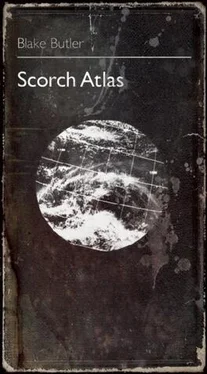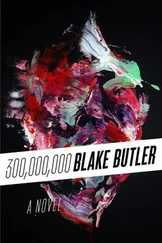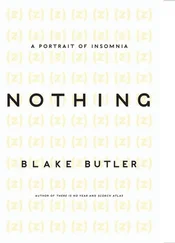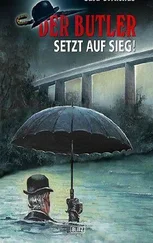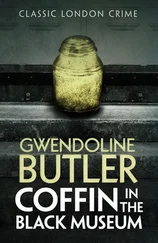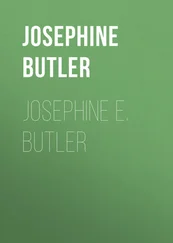They continued in a short trench out into the heart of where the wet had been.
The phantom waves seemed to lap at Randall’s head. He breathed air that once would have been liquid. He kept looking back behind him, waiting to see the sea come back, enfolding. The brine filling his nostrils. The water wrapped around his face.
The girl messed with the transmitter’s signals near him, squelching. Certain frequencies ached his teeth, CHPCHRRAKRAK . The bulbs and wires screamed. Randall imagined those same signals invisible in the air around him, licking up against his skin, the same way they’d ruined his son: the errored flood of digits soldered to nothing, wormed into the flesh of the baby’s head; how the head’s molecules had formed clusters in reaction, spreading out, a blooming fist.
As they got further from the shore ground, the sand began to level out. The refuse became more sparse or deeper buried. The ground made one long blur in all directions, its one bland color stretched. The sun stayed put, enchanting. Randall stared into it, forcing his eyes against the blink. He let the light wash his vision hazy. In seconds he couldn’t see where he was going; he let his stumbling lead them further, the heat washing in boggled machination behind his face. He chewed just slightly on his ached tongue, imagined steak. He could hear the girl veering around him, lit by the cracked transistor’s bleep. She was to his left, then right; behind then way on; then somehow overhead. He felt overheated. He felt multi-pronged and run through. He continued on regardless, warbling. He blew a saliva bubble and it popped softly on his lips.
When he could see, he saw a house — ranch-style, dull orange, three-bed two-and-a-half-bath, there in the stomach of the land.
Randall looked, and looked again. It was not apparent from the condition of the house that it had been underwater. The flat sheen of the old paint shone in the new light. He and the girl stood there before it, blinking. The large-paned windows glared and gleamed.
The speaker between them went ABEEEEEEZE .
There was a welcome mat and a tall chimney that stretched so far into the sky Randall couldn’t tell at all where it ended and where something else began. Several plastic children’s toys were left scattered in the sand yard. There was a swing set and a bench. There was a two-door garage inside which two twin black vehicles sat silent.
Randall touched the vinyl siding and found it warm and flat, undisappearing. He crossed the sand yard up the short stoop to the front door. There was a texture to the stair steps, razed in a pattern that crossed his eyes. He climbed the steps and rang the bell. The toning chimed inside the house, one long whole note that resounded, then was over. Nothing moved. No eye appeared inside the spyglass. No footsteps. Randall knocked three times with all his knuckles. He tried the knob and found it locked. The doorframe would not give.
Around the house through a side window, Randall looked into a living room. There was a white leather sofa and a recliner arranged around a large TV. The TV was on and through the screen glass showed a cartoon dog and cartoon cat. The dog hit the cat with a piece of driftwood and the cat laughed.
There was no one in the room.
Randall tried the window but it would not stutter. The pane swayed and shimmied with his fist. Overhead the sun still stung and stared.
Randall stepped back from the house. The roof had the same pattern as the stairwell, a mess of lines of scattered depth. He walked back to where the girl stood. He stood looking on inside the light. Static rattled from the transistor, nuzzled tight against her torso. He gave her a look and she shut it off. She turned around toward the house.
Randall watched as she walked toward it in the same slow path as his, up the strange steps to touch the door with both her hands, though this time the knob turned; the door opened on to the inside.
The girl looked back at Randall and closed her eyes.
The air between them wavered.
Inside, the house was cool and clean and smelled of cedar. The hardwood floors reflected their faces in the grain. They called out up the stairwell and into the adjoining rooms, peering around corners to no response, no motion. The home’s air hung around them, parting.
In the short hall Randall’s shoulders brushed both sides.
Upstairs they found a child’s room, painted pink and draped with lace — a canopy bed piled with pillows and stuffed toys, a loom. The bed was dressed in patchwork in the same way as the girl’s clothes. There were no fingerprints, no dust, no locks.
On the nightstand beside the bed there was a small picture in a frame. In it, a young man stood beside a tree with both hands behind his back.
The girl lifted the frame and stroked the glass grain with her thumb.
“My father,” she said. “He looks young.”
She propped the photo back on the stand to face the bed.
Across the hall they found a larger bedroom with a large oak-framed mattress and a roll-top desk stacked with new paper. The longer wall was made of bookshelves, husky spines packed end to end. Some of the books were filled with blather, math, rune symbols. The clothes inside the walk-in closet fit Randall close enough. He changed out of his sandy jean suit into blue fur pajamas and stood in the mirror trying to recognize his face.
Above the bed was an enormous painting of an ocean, slung with froth, mostly opaque.
Back downstairs, in the kitchen, they found the pantry fully stocked; the fridge overflowing with clean light. They ate peanut butter and corned beef. They ate avocado and pineapple spears, drank cold filtered water from a pitcher. As they ate, their skins began to loosen, the texture of their tanned skin and going smooth. They carried plates into the living room and ate in front of the TV where now the cartoon dog and cat were smiling and on fire. The sofas were large and comfortable and smooth. There was enough room for both of them to sit sprawled out on their own seat and sink their skins into the cushions. They watched the TV, droning. There were no news clips and no commercials.
In sleep, their warm brains drifted, slow pulses still and steady.
Randall slept with his mouth open, drooling, seeing his son was made of light, full and stitched and spotless.
The girl nuzzled a pillow and rolled over upside down and hummed.
While they lay, the house made short clicking sounds around them, slight settlings, shifts of air.
Randall woke later to the touch of something crawling in his hair. He sat up quick, with fists clenched. The girl lay across from him with the transistor. In her sleep she’d turned it on. The signal came in clearly, broadcasting the same soft-sunned song he could not place — throbbing and monotone and wordless. It sang out from the tiny, salvaged speaker from everywhere at once.
Randall blinked, his body sponging. He tried to think of where he’d been. He muttered something old beneath his breath.
The girl opened her eyes.
She smiled and watched him, her sleep still glazed and changing. She pointed past him to the window, between the thick green curtains parted wide.
Through the glass into the sand yard, Randall saw the rain there coming down — liquid rain. Plain water poured in droves. It sluiced against the paneled glass so thick he couldn’t see a foot beyond. He moved to the frame and pressed his face against it, saw where below the lip the runoff had already gathered several feet. It lapped at the bottom panes, compiling upward, beaded droplets cascading down the glass.
Inside, the song continued, drawing upward, its long calm chords vibrating the air, his hair, the house.
INK
Hard to decipher in its squall — the long squirts of liquid in stretched blue pyramids descending on the yard. Soon the windows streaked so thick you could no longer trace your name. The house was full of drip: the chimney glutted; the ceiling leaking; the sinks overflowed a new pool on the carpet. What books could have been written with this excess. What squid would hide from light. Out on the back porch the level rose to lap the welcome mat. You couldn’t see into the street. Everything clogged and burped and sopping. The surface reflected whatever peered into it. Overhead some sound like choking: gooed helicopters, gummy birds. The seas were heavy somewhere. I scratched my cheek and half-expected the unctuous gleam to come pouring out of me. Instead: my blood, several shades of brown. I slept what hours I could manage. I waited to wake up to something clean. In the nights, when the dripping swung low, we climbed onto the roof to try to see the city: a blubbered dot hung from the sky, a runny, rotten, murdered thing — a billion voices buried beneath, all saying the same thing over and over, smothered out.
Читать дальше
